I know my knee-jerk response is not always my wisest response.
All of us who have gone through the editorial process are familiar with the conundrum: We want to work with our editors. We want to cultivate reputations for being easy to work with, cooperative, flexible, etc. No one WANTS to be known as a prima donna. At least almost no one. But then we find that our editor (or our copy editor, or our proofer) has altered something we didn’t want altered, killed a darling we weren’t willing to sacrifice. What do we do? Do we dig in our heels in order to keep the original wording, carving “STET” (editorial speak for “let it stand”) into the manuscript with a bloody blade? Or do we give in, though it hurts physically to do so?
Put another way, when do we as writers fight for wording we want, and when do we acquiesce?
Over the past few years, I have been both editor and writer on a number of stories and novels. I have felt the sting of having passages I have written, passages I care about, altered by an editor, and I have also had writers reject editorial feedback I have given that I know, with every fiber of my being, would make their work better. I haven’t enjoyed either experience, yet I have come to see that both are natural, even necessary, outcomes of the literary process.
At its best, the relationship between writer and editor is collaborative, cooperative. It necessitates compromise. Some of our darlings won’t survive the process. Some of the editor’s suggestions will be rejected. Early in my career, I worked with an editor who had far, far more experience than I did, and this editor expected that I would defer in most if not all cases. Our interactions often left me feeling bullied, and there were changes the editor insisted upon that I wish I had rejected. I have also, in my editorial capacity, worked with writers who refuse all suggestions. All of them. Neither extreme is likely to produce the best possible version of the story, which, of course, ought to be the entire point.
So, as writers, how do we decide how hard to push back, when to compromise, when to insist on our wording or approach? And as editors, how insistent should we be?
Let me begin by addressing that last question, because in many respects it’s the easiest to answer. In my capacity as editor, I feel it is my responsibility to point out to my writers anything and everything I can see that I believe needs to be fixed in order to improve the story or book. I will offer possible solutions — alternate wording or potential fixes for narrative issues, but none of what I suggest is meant to be the only possible approach. My purpose is to point out a problem. The author can fix it any way they choose. Or they can decide it’s not a problem. And, generally speaking, if an author decides the problem I have identified is NOT in fact a problem, I will respect that decision. Every now and then, if I believe the issue is serious enough and the author decides initially that they don’t agree, I will mention the issue again and explain why I think it matters, and how it might be addressed without changing too much. After that, I won’t say more. It’s the writer’s story, after all. Their name is on it, not mine.
And in my capacity as writer, I follow the same principle. It is my story. My name is on the byline, not the editor’s. Now, having said that, I also have to add that I accept the vast majority of my editors’ suggested fixes, and I always take seriously any problem they identify. Why? Because my editors are professionals and they know what they’re doing. Because we writers can’t possibly see every flaw in our work; we’re simply too close to it. Because I am far from perfect. And because I trust the process and I understand the editor-writer relationship is not adversarial; my editor’s goal is my goal: to make the story as good as it can be.
So how do I decide when to stick to my guns and when to give in on an issue of wording or style, plotting or character work?
1. I give the matter some time to percolate. The truth is, often when I disagree with something my editor suggests, my first impulse is to resist, to refuse, to insist on having things my way. And so, when reading through an edited manuscript, I will mark the issue as something to return to later. I essentially stick a pin in it. Because I know my knee-jerk response is not always my wisest response.
2. When I return to the issue, I try to see what it is the editor is pointing out. Remember I said earlier, in talking about editing, that editorial suggestions are just that: suggestions. They are a way of saying, “There’s a problem here.” Good editors do not add, “And you need to fix it my way.” So I try to see the issue my editor has identified, and for the moment I ignore their suggested solution. Much of the time, I can find edits that preserve the tone I want while also addressing the problem the editor has identified.
3. If, after some time and some careful consideration, I still find myself disagreeing with the edit, I ask myself how much it matters to the book. Is this issue worth an argument? Quite often, they’re not. I take pride in my writing and I craft each word, because I want my books and stories to read a certain way. But I know many of my readers don’t take the same care in reading a book that I take in writing it. That’s natural. So, are readers likely to notice if I change this in some way? If the answer is no, the issue is probably not worth fighting over. It’s just up to me to get over myself.
It’s worth noting here that, generally speaking, issues related to style and wording are important but not crucial. Questions touching on narrative issues — plotting, pacing, character — are fundamental, and so I am far, far more likely to insist on having my way in these instances. A few series back, I rejected a number of edits suggested by an editor because I knew they were wrong and I felt certain the edits they suggested would ruin the book. I got my way. And I never worked with that editor again.
4. Finally, if I have given myself time to settle down, if I have decided the issue is one I care about, if I have decided that making a change is going to impact materially my readers’ experience, I will insist on keeping the wording or narrative point as I originally wrote it. STET that sucker.
But as you can see, even with my conviction that we authors should always have the final word (It’s. Our. Book.) I do all I can to respect and take seriously the work done by my editors. It’s worth saying again: Editors and writers are allies. We work together to make a manuscript as good as it can be. Editors who push too hard, and authors who are too resistant to changing anything, undermine the editorial process. They may think they are scoring points in some ridiculous battle of ego and control. But all they are doing is hurting the manuscript, which benefits no one.
Keep writing.









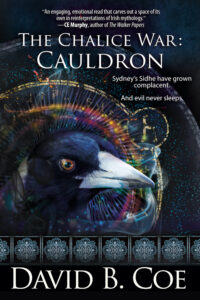 I also know that what has been a quiet year thus far is about to get very, very busy. Starting in May, we (
I also know that what has been a quiet year thus far is about to get very, very busy. Starting in May, we ( I have two other projects underway as well. A nonfiction thing that I am not ready to discuss in detail, and, at long last, the editing of the Winds of the Forelands books for re-release in late 2023 or early 2024. And I have another writing project — a collaborative undertaking — that I also cannot describe in detail, simply because I am not the organizing force behind the project, so it is not mine to reveal. But I am excited about it.
I have two other projects underway as well. A nonfiction thing that I am not ready to discuss in detail, and, at long last, the editing of the Winds of the Forelands books for re-release in late 2023 or early 2024. And I have another writing project — a collaborative undertaking — that I also cannot describe in detail, simply because I am not the organizing force behind the project, so it is not mine to reveal. But I am excited about it.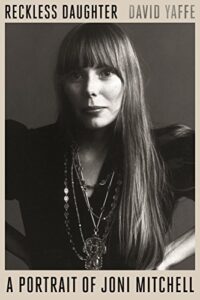 Recently, I have been reading a biography of Joni Mitchell (a holiday gift from my older daughter), a long-time favorite of mine and, in my opinion, the finest songwriter in the history of rock and roll (more on that shortly). It’s been an interesting read — the author is a bit fawning for my taste, and a bit too eager as well to weave Mitchell’s (admittedly phenomenal) lyrics into his prose. But as is often the case when I read biographies of artists I admire, the book made me think about creativity and the artistic process.
Recently, I have been reading a biography of Joni Mitchell (a holiday gift from my older daughter), a long-time favorite of mine and, in my opinion, the finest songwriter in the history of rock and roll (more on that shortly). It’s been an interesting read — the author is a bit fawning for my taste, and a bit too eager as well to weave Mitchell’s (admittedly phenomenal) lyrics into his prose. But as is often the case when I read biographies of artists I admire, the book made me think about creativity and the artistic process.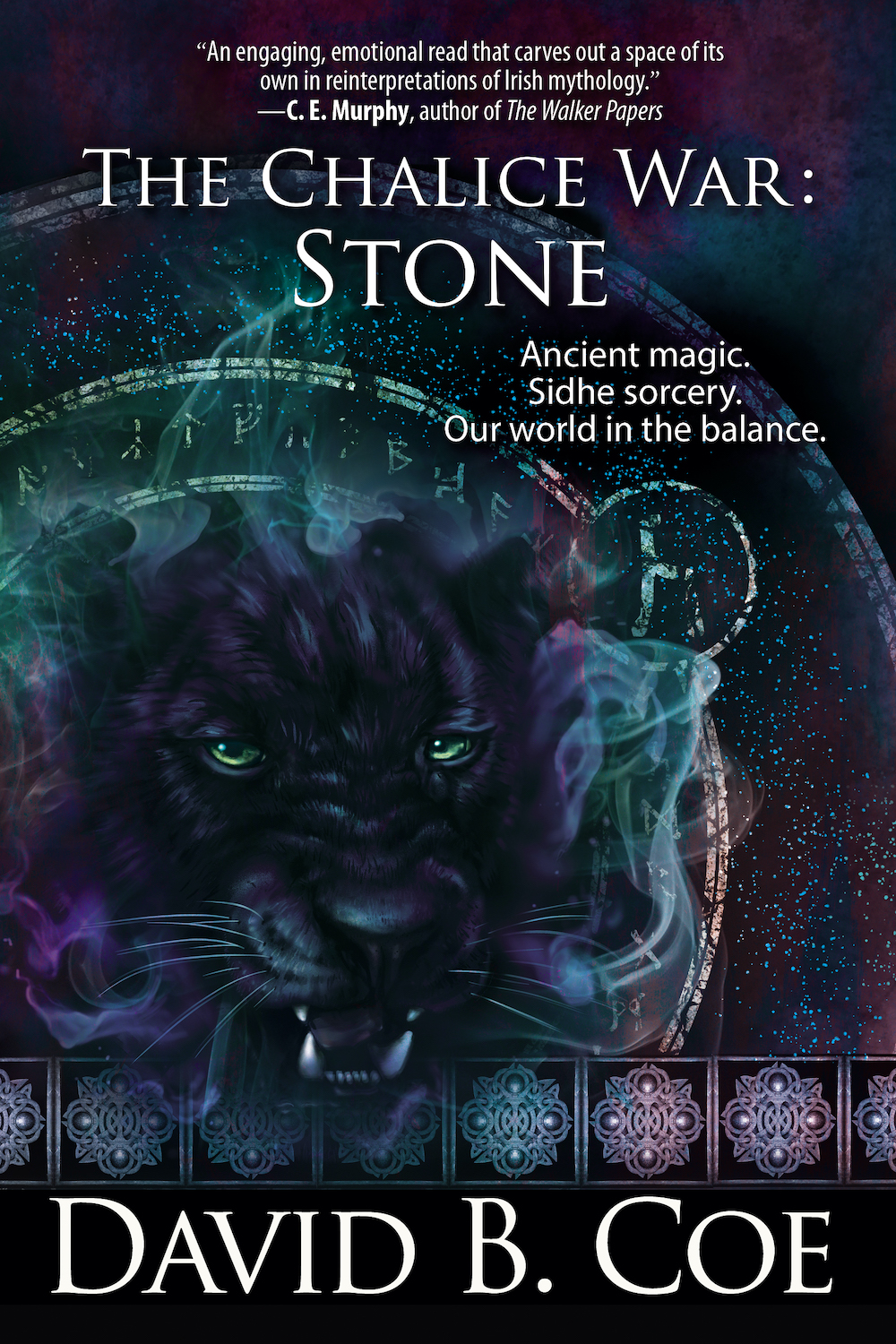 As I have mentioned previously, the release of the first book in my upcoming Celtic urban fantasy, The Chalice War (
As I have mentioned previously, the release of the first book in my upcoming Celtic urban fantasy, The Chalice War (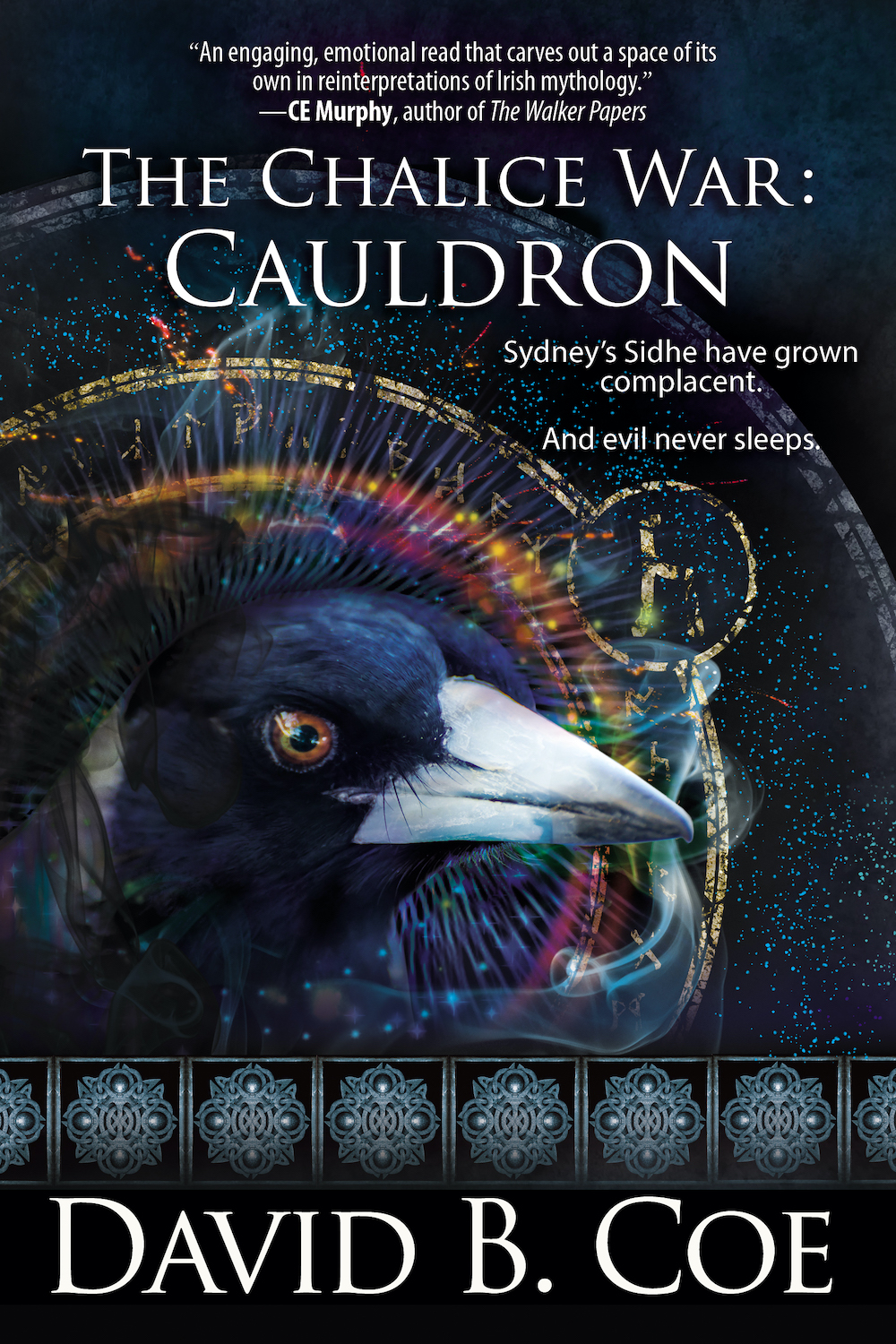
 I’ll preface this discussion with the obvious: I’m old. I’ve been in this business for a long time — it’s been nearly three decades since I signed my first contract. When I got started in the business, publishers were just beginning to expect that writers would maintain websites. Websites! Facebook and Twitter and the rest didn’t even exist. And when we signed contracts, writers could rightfully expect that our publishers would handle the bulk of the necessary publicity, which consisted mainly of taking out ads in journals, sending review copies to print magazines (kids, ask your parents) and other critical venues, setting up newspaper, radio, and television interviews, and arranging signing tours and individual store events.
I’ll preface this discussion with the obvious: I’m old. I’ve been in this business for a long time — it’s been nearly three decades since I signed my first contract. When I got started in the business, publishers were just beginning to expect that writers would maintain websites. Websites! Facebook and Twitter and the rest didn’t even exist. And when we signed contracts, writers could rightfully expect that our publishers would handle the bulk of the necessary publicity, which consisted mainly of taking out ads in journals, sending review copies to print magazines (kids, ask your parents) and other critical venues, setting up newspaper, radio, and television interviews, and arranging signing tours and individual store events. Blogging and social media are extras. Yes, in this day and age, they are important extras. Crucial, some might say. We have to publicize our books, or no one will buy them or read them. But as vital as this part of the job might seem, I would once again turn the previous phrase on its head: We have to publicize in order to be read? Yes, we do. But more important by far is this: We have to write the books in order for any of that publicity to be worth a damn.
Blogging and social media are extras. Yes, in this day and age, they are important extras. Crucial, some might say. We have to publicize our books, or no one will buy them or read them. But as vital as this part of the job might seem, I would once again turn the previous phrase on its head: We have to publicize in order to be read? Yes, we do. But more important by far is this: We have to write the books in order for any of that publicity to be worth a damn. And I did. The book was Invasives, by the way. It contains the best character work I’ve ever done, and that is no coincidence.
And I did. The book was Invasives, by the way. It contains the best character work I’ve ever done, and that is no coincidence. Right around the holidays, I was shouting from the virtual rooftops about my new Celtic urban fantasy trilogy, The Chalice War, which would be coming out early in 2023. The first book, I bellowed (virtually), would be coming out in February, and it would be called The Chalice War: Stone. It would be followed, a month or so later, by The Chalice War: Cauldron, and then a couple of months after that by the finale, The Chalice War: Sword.
Right around the holidays, I was shouting from the virtual rooftops about my new Celtic urban fantasy trilogy, The Chalice War, which would be coming out early in 2023. The first book, I bellowed (virtually), would be coming out in February, and it would be called The Chalice War: Stone. It would be followed, a month or so later, by The Chalice War: Cauldron, and then a couple of months after that by the finale, The Chalice War: Sword.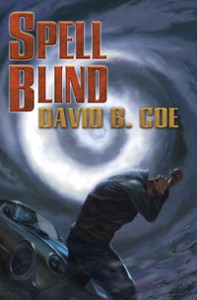 Some years later, soon after the release of Spell Blind, the first book in The Case Files of Justis Fearsson, another Amazon reviewer panned the book because my book was “a blatant rip-off” of Jim Butcher’s Harry Dresden books, “a ludicrous case of copycatting.” For the record, I didn’t copy Dresden at all. I had only read the first two books of the series, and the “copycatting” the reviewer claimed I’d done amounted to using tropes of the genre, not elements of Butcher’s work. And so I responded to the review, wanting to set the record straight.
Some years later, soon after the release of Spell Blind, the first book in The Case Files of Justis Fearsson, another Amazon reviewer panned the book because my book was “a blatant rip-off” of Jim Butcher’s Harry Dresden books, “a ludicrous case of copycatting.” For the record, I didn’t copy Dresden at all. I had only read the first two books of the series, and the “copycatting” the reviewer claimed I’d done amounted to using tropes of the genre, not elements of Butcher’s work. And so I responded to the review, wanting to set the record straight.